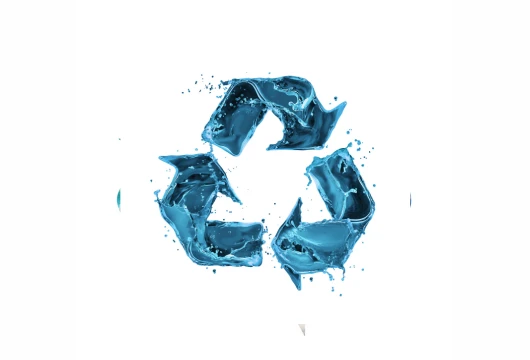Arizona Pioneers Water Sustainability By Turning Wastewater into Drinking Water
Amid rising concerns over water scarcity, Arizona is stepping up as a trailblazer in sustainable water management. In a groundbreaking move, the state has approved regulations to convert treated wastewater into potable water. This forward-thinking initiative underscores Arizona’s commitment to addressing its water challenges through innovation and sustainability.
Recycling Wastewater for a Sustainable Future
The Arizona Department of Environmental Quality (ADEQ) announced this initiative, ensuring that treated wastewater undergoes rigorous filtration and monitoring to meet federal drinking water standards before it reaches public systems. By embracing this transformative approach, Arizona aims to secure a resilient and sustainable water future.
Arizona’s Critical Need for Innovative and Sustainable Water Solutions
Arizona’s reliance on finite water sources like groundwater (41%) and the Colorado River (36%) highlights the urgency of sustainable water management. The Colorado River, a lifeline for the region, faces dwindling flows due to climate change and increasing legal complexities. Meanwhile, groundwater replenishes far slower than consumed, creating a pressing need for alternative sources.
Direct potable reuse (DPR) of reclaimed water offers a viable solution. By lifting the ban on DPR in 2023, Arizona has opened the door to innovation. Reclaimed water accounts for just 5% of the state’s water supply, but the new regulations aim to significantly expand its role in meeting the state’s needs.
The Journey to Public Acceptance
While the scientific community lauds DPR as a sustainable solution, public perception remains challenging. ADEQ’s survey revealed that around 25% of respondents are hesitant to embrace treated wastewater as a drinking source, with concerns stemming from the so-called ‘yuck’ factor.
Public awareness campaigns will play a vital role in addressing these concerns. Arizona can build confidence in its water sustainability strategies by emphasizing the rigorous purification processes and safety measures. Learning from other states and countries that have successfully implemented DPR can also help ease public apprehension.
A Proven Path to Sustainability
Arizona’s journey toward sustainable water management has been around for a while. The state has a history of innovative water policies, such as the 1980 Arizona Groundwater Code, which helped recover depleted aquifers. The DPR initiative builds on this legacy, offering a long-term solution to water scarcity while reducing reliance on overdrawn groundwater and the Colorado River.
The multi-step wastewater treatment process ensures its safety and quality. Advanced filtration techniques remove impurities and pathogens, including reverse osmosis and ultraviolet disinfection. The treated water is then rigorously tested to meet or exceed federal and state standards, guaranteeing its suitability for human consumption.
Broader Implications for Water Sustainability
Arizona’s pioneering efforts have the potential to influence water management practices nationwide. As climate change exacerbates water scarcity, other states may look to Arizona’s example to adopt similar solutions. The DPR model can serve as a blueprint for sustainable water management, demonstrating that innovation and collaboration can overcome even the most pressing challenges.
Complementary Water Conservation Efforts
While large-scale initiatives like DPR are critical, individual and community actions are equally important in promoting water sustainability. Experts recommend simple yet impactful measures, such as:
- Desert Landscaping: Replacing traditional lawns with drought-resistant plants to reduce outdoor water use.
- Fixing Leaks: Addressing household leaks promptly to conserve water.
- Water Footprint Calculators: Using online tools to assess and reduce personal water consumption.
These efforts, combined with state-level policies, create a comprehensive approach to water conservation that benefits both the environment and future generations.
A New Era for Water Management
Arizona’s decision to integrate wastewater recycling into its water supply marks a significant step toward sustainability. As the state navigates challenges like public acceptance and infrastructure development, it sets an inspiring example of innovation in adversity.
The broader implications of Arizona’s strategy are clear: sustainable water management is no longer optional—it’s essential. By rethinking traditional water sourcing methods and embracing forward-thinking solutions, Arizona is leading the charge in securing a sustainable future for all.
For more in-depth analysis and inspiring climate news, click here.

